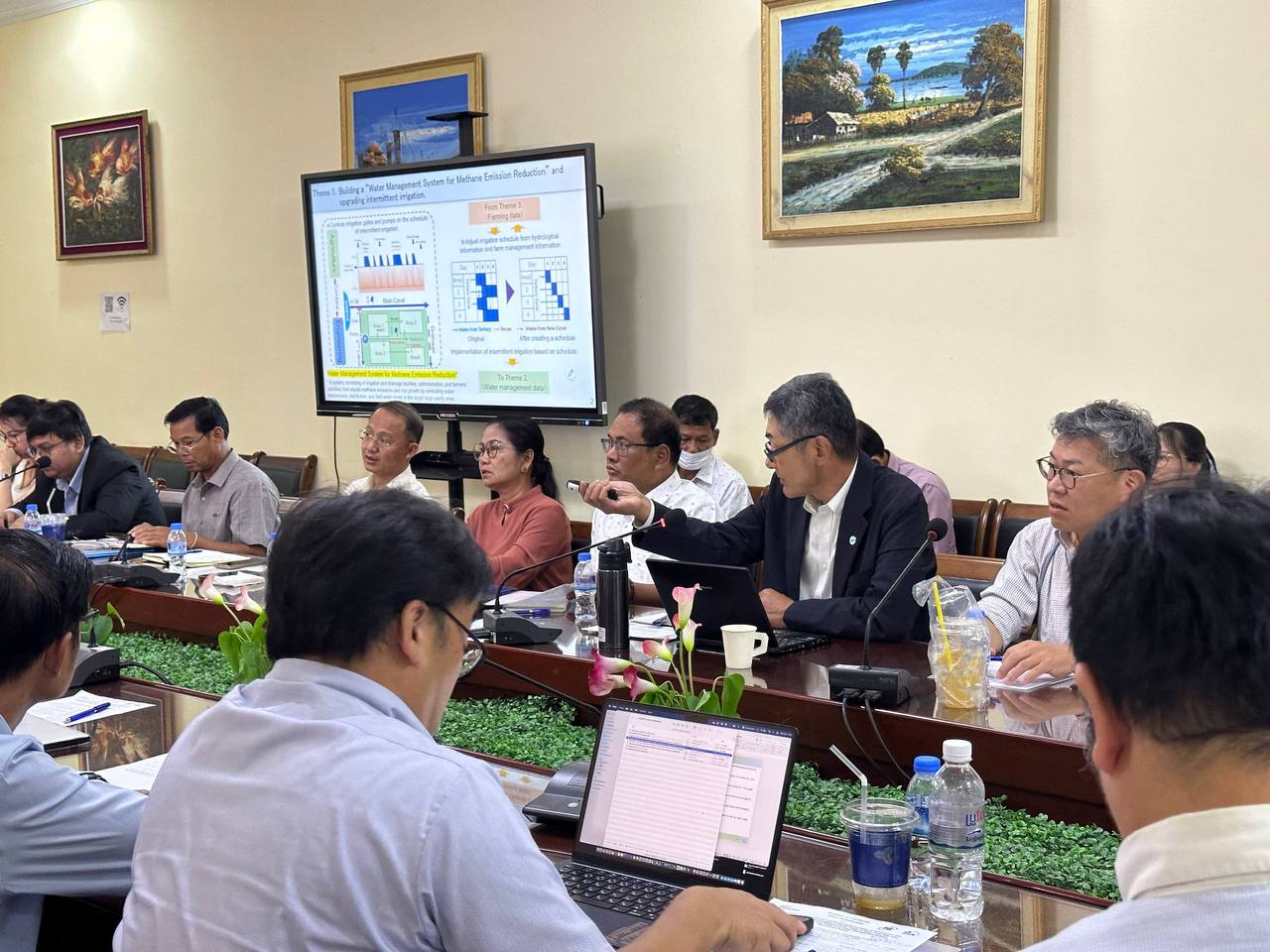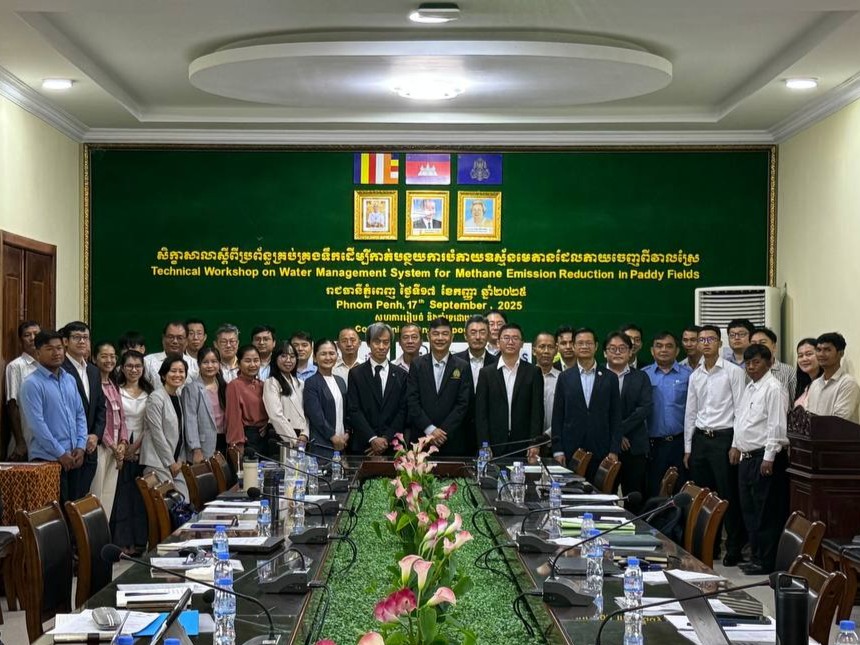On September 17, 2025, a technical workshop on water management for methane emission reduction in paddy fields was held at the Royal University of Agriculture (RUA) in Phnom Penh, Cambodia, as part of the RiceGX-SATREPS project led by the Japan International Research Center for Agricultural Sciences (JIRCAS).
Launched in FY2024, the project aims to develop water management techniques that reduce methane emissions from rice paddies while maintaining rice yields. It also promotes the development of monitoring and evaluation methods for greenhouse gas reduction and their social implementation. Given the increasing emphasis on reducing greenhouse gas emissions in the agricultural sector, methane emitted from Southeast Asian rice paddies—having 25 times the global warming potential of carbon dioxide—has become a critical target for mitigation.
The workshop brought together approximately 60 participants (45 in person, 15 online) from diverse sectors, including Japanese researchers involved in the project, researchers from RUA and the Institute of Technology of Cambodia, officials from Cambodian government agencies such as the Ministry of Agriculture, Forestry and Fisheries, the Ministry of Water Resources and Meteorology, the Ministry of Environment, the Provincial Departments of Water Resources and Meteorology (PDWRAM) and Agriculture, Forestry and Fisheries (PDAFF) in Pursat Province, and specialists from international partners such as the JICA Cambodia Office and the Asian Development Bank, as well as private consultants.
This workshop featured progress reports on the project, case studies from other countries, and detailed explanations of the methane reduction effects of alternate wetting and drying (AWD) irrigation. Cambodian ministry staff and researchers who had received training in Japan also reported on their experiences and shared their insights.
Focusing primarily on water management technologies, the workshop provided a meaningful opportunity to promote and expand methane reduction practices in rice paddies, with participation from international organizations and private sector representatives. JIRCAS will continue to create similar opportunities for other research topics, aiming to advance technology sharing and social implementation.


